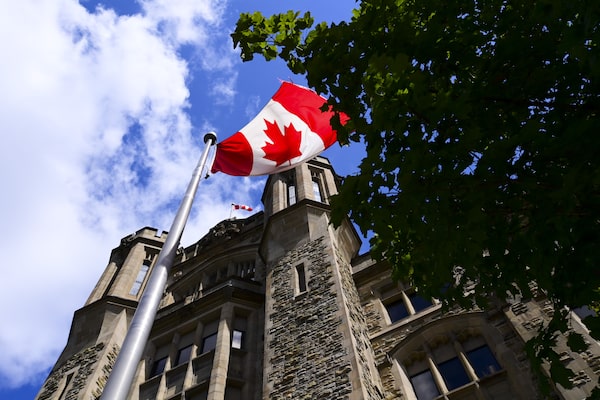
The Canada Revenue Agency headquarters in Ottawa on Aug. 17, 2020.Sean Kilpatrick/The Canadian Press
The Canada Revenue Agency says 232 employees have been fired to date for collecting CERB payments during the pandemic and the number could climb higher as an internal review continues.
The Canada Emergency Response Benefit paid $500 a week and was offered to individuals who could not work for reasons related to COVID-19.
The federal tax collecting agency has been providing regular updates on the progress of an investigation into whether public servants collected pandemic benefits to which they were not entitled.
The figure stood at 185 in December, the last time the agency provided an update.
Agency spokesperson Sylvie Branch said in an e-mail Tuesday that the figure has climbed to 232 former CRA employees. She said these employees “who inappropriately applied for and received the CERB” are no longer with the agency.
The agency has previously said that it identified about 600 employees for further investigation following an initial review.
“The CRA’s case-by-case review continues,” Ms. Branch said. “Being a current employee of the CRA does not necessarily mean an individual was ineligible for the CERB. The CRA employs individuals with a variety of employment profiles such as temporary and student contracts; and, as such, some individuals were eligible to receive the CERB. As a result of this process, 133 employees have been found to be eligible so far.”
The CRA has 59,019 full-time employees, according to figures released in 2023.
Senior officials with Employment and Social Development, the other department responsible for delivering pandemic benefits, told MPs last year that the department has terminated 49 employees “in regard to misrepresentation of their situation when they were applying for CERB.”
Auditor-General Karen Hogan released a report in December, 2022, warning that billions of dollars in ineligible COVID-19 benefit payments were at risk of going uncollected.
In addition to issues related to pandemic benefits, the federal government is also responding to concerns related to pandemic-era contracting, such as the ArriveCan app for cross-border travellers.
Ms. Hogan released a report in February that expressed concern with the level of interaction between public servants and GCStrategies, the main ArriveCan contractor, in relation to a $25-million contract the company won after no other bids were received.
Ms. Hogan questioned why the terms of the contract were written in a narrow way that appeared to favour GCStrategies.
Treasury Board president Anita Anand announced last week that the federal government is updating its directive on conflicts of interest for public servants with responsibilities related to federal contracting.
Ms. Anand made the announcement at the same time as the government revealed that an internal review of federal contracting found nearly $5-million in fraudulent billing by three private subcontractors. The review covered a period between 2018 and 2022. Federal officials described the announcement as the first wave of updates related to fraudulent billing tied to government contracts.